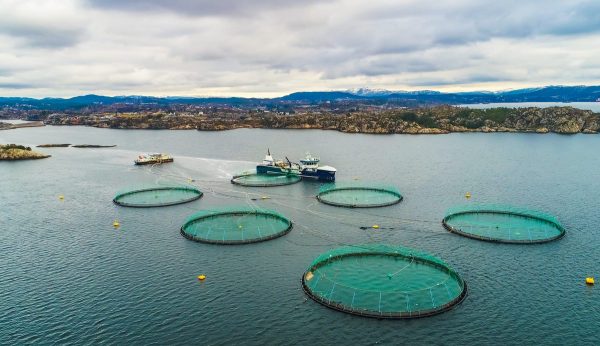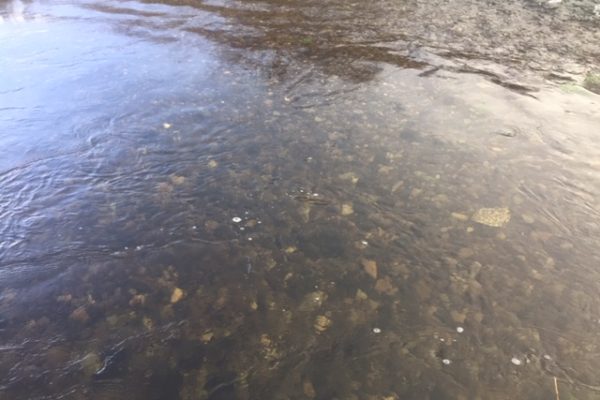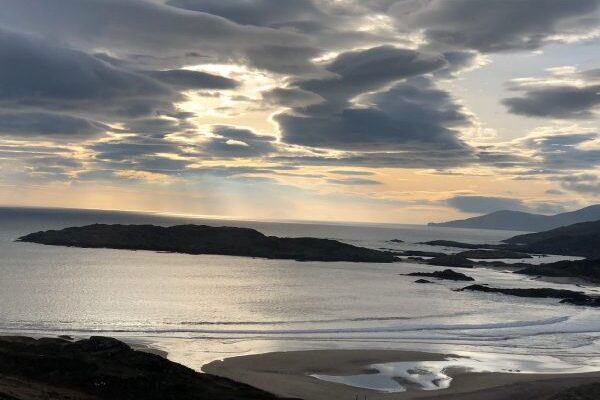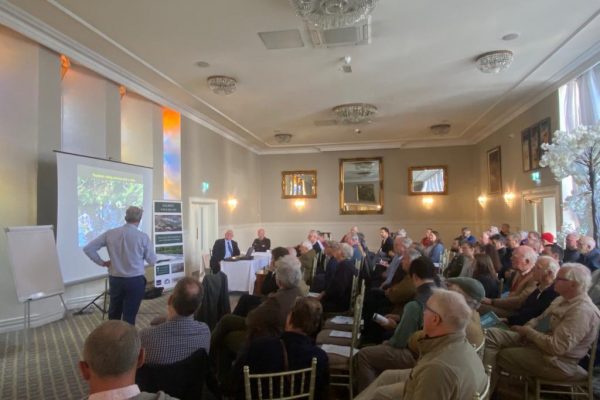-
Launch of Salmon Watch Ireland’s 2025 Policy Statement – A Call to Protect Ireland’s Wild Atlantic Salmon
We are pleased to share with you Saving the Irish Salmon – Policy Statement 2025, Salmon Watch Ireland’s updated and comprehensive plan to safeguard one of our nation’s most iconic species. This revised policy builds on our original 2019 proposals and reflects the urgent challenges now facing wild Atlantic salmon. Numbers have fallen by approximately 90% since the 1970s, and without decisive action, salmon could become a rare sight in Irish rivers within our lifetime. The document outlines: The current crisis in salmon stocks, its causes, and the growing threats from climate change, habitat loss, pollution, overfishing, aquaculture impacts, by-catch and barriers to migration. A science-based framework for reversing the decline, focusing on habitat restoration, barrier removal, predator management, and stricter regulation of exploitation and aquaculture. Policy recommendations for government, agencies, communities, and international partners, including reforms to the Salmon Conservation Fund and the creation of an independent Aquaculture Authority. This is not just a policy document – it is a call to action. Protecting salmon will require leadership, cross-sector collaboration, and strong public support. We invite you to read the full statement, join the conversation, and help us in building the momentum for change. You can access the full policy document in the attached. While the policy document is comprehensive, we anticipate that the detailed management of Ireland’s salmon resource will need to evolve in response to emerging challenges, ensuring the strategy remains effective and delivers lasting results. Thank you for your continued commitment to Ireland’s environment and biodiversity. Together, we can ensure that future generations inherit healthy rivers and thriving salmon runs
Continue reading -
Weekly Update 14 Dec 24 – Marine Institute Salmon and Sea Trout Census 2023
The Marine Institute Annual Report outlines the activities of the MI in 2023. It is a large piece of work but our interest is focussed on activities involving wild Atlantic salmon, sea trout and the large scale ranching program being carried out in Burishoole. The trapping system in Burishoole is quite unique in that it enables personnel to physically count all emigrating smolts and sea trout juveniles leaving the system and count and examine adult returnees including ranched salmon. The count is full (except if traps are overwhelmed by flood water) with each fish examined and this allows the removal of adult ranched salmon before they reach the spawning beds. The data series is unique with data stretching to over sixty years and is one of Irelands index systems which reports to ICES and NASCO. The wild salmon census indicates a survival rate of 5.6 % of fish who emigrated to sea in 2022 and continues a static and depressed return rate. This return may be slightly upgraded by return of multi sea winter fish in 2024 but these are few in numbers. The sea trout census is again alarming and it is reasonable to conclude that this stock is functionally extinct and the primary cause must be salmon farming in Clew Bay. It is apparent that this population was destroyed in the 1980's (Expansion of Salmon Farming) and obviously reached such a low ebb that recovery is probably out of the question unless salmon farming is removed from the area. It is interesting that sea trout are included in the nature restoration law and what better place to start their rehabilitation where progress in restoration could be accurately followed. At this stage it could take decades to rehabilitate the population back to functioning as a self sustaining stock. While not having accurate access to the amount of ranched juveniles released it is possible to suggest that their survival has reduced significantly in the past number of years which coincides with poorer returns of wild fish. The following video gives us a view on how the traps work and how the data is used to inform management of salmon stocks. Interesting facility but we certainly cannot condone the lack of comment by the MI on both the impact of salmon farming on wild salmon and the silence regarding the collapse of sea trout stocks. Newport Research Video
Continue reading -
Marine Institute - Year in Review - Declining Salmon Count and Low Levels of sea trout The Marine Institute Year in Review 2023 includes a comprehensive count of wild salmon and sea trout for 2023 and demonstrates a declining and unstable population of wild salmon and dramatic population collapse of sea trout. The data covering the period 2019 to 2023 demonstrates a declining trend of survival at sea for wild salmon and reared grilse. It is interesting to note the much improved output of salmon smolts from the relatively higher return of adults in 2020 demonstrating a strong correlation between spawning numbers and smolt output. This system is below its conservation limit due to poor adult return rates and productivity is negatively affected by environmental factors in fresh water. It is evident that more spawning fish, especially fish that are in generally good condition as witnessed in 2020 deposit more ova thus increasing productivity. This is particularly important in rivers where salmon numbers are depressed and where every salmon should be allowed to spawn. This fits in with our policy relating to exploitation and while the majority of rivers are closed to exploitation some remain open and should be treated with caution. Anglers should consider their own conduct and limit their catch. We have advocated for a reduction in tags, one salmon in spring period and return of salmon over 65cm during the summer period while advocating for catch and release of all salmon in September. We have also advocated for a cessation of commercial netting of salmon. The Data demonstrates a reducing trend in sea survival from 10.18 percent in the cohort of smolts which went to sea in 2019, through to 2022 at 5.56 percent. The decreasing trend from 2019 to 2022 smolt cohorts is as follows, 10.18, 7.17, 5.88 and 5.65 (Provisional Data 2023) percent. It is alarming but not a surprise to see the declining trend in survival at sea. 2024 did show an increase in some catchments regarding grilse numbers and it will be interesting to see data from the Marine Institute in next years report. The paltry number of sea trout returning is not surprising and this graph really demonstrates the issue. Salmon Farming is the cause of this collapse and cannot be denied.
Continue reading -
Salmon Farm Escape – Killary Harbour , County Galway
Salmon Watch Ireland has been alerted this morning to a large escape of farmed salmon from Rosroe salmon farm in Killary Harbour which occurred on Sunday, 11th August. The escape appears to have been caused by a fish farm boat colliding with salmon cages which resulted in an escape of farmed salmon numbering over ten thousand fish. It must be stressed that this figure may be an underestimate as it is likely that accurate reporting of such escapes are at best, estimated. The farmed salmon are 1.5 kg to 2kg in weight and reports indicate that large numbers can be seen throughout Killary Harbour. The farm licence is listed as owned by Docon Limited, Mulranny Co. Mayo with a recent transfer from previous owners in October 2023. Local information suggests that MOWI have a substantial interest in this farm. Salmon Watch Ireland would like to ascertain if all operating procedures were put in place to safeguard the cages prior to this incident and if all necessary reporting steps were taken once the escape was discovered. We would also like to know if steps are to be taken to trap the escapees and prevent them from entering the nearby wild salmon catchments. In the recent decision by Judge Holland in relation to the Bantry Bay Judicial Review, he noted that the EIA was not comprehensive enough as it related to specification and structural integrity of the cage infrastructure. This incident once again highlights the dangers and risk of damage to farms and highlights the very real risk to wild salmon genetics. These fish may in time enter rivers and interbreed with the wild salmon both in Killary harbour catchments and indeed further afield. We regard the removal of open cage technologies as a priority to protect wild salmon and are calling on DAFM to reconsider siting these farms at sea. In the interim it is of the utmost importance that the maximum number of escapees are captured to reduce risks to local wild salmon populations. We encourage anglers to report and remove farmed salmon if caught and we strongly suggest that Inland Fisheries Ireland and the Marine Institute should facilitate a program of removal by all available means.
Continue reading -
Ballisodare Atlantic Salmon Mortalities
With a large number of mortalities and an ongoing investigation by IFI and the Marine Institute it would suffice to say that to lose up to 900 adult salmon is a tragic outcome for this river. We await the outcome of the investigation but we are aware that it appears that the losses are primarily adult salmon. This may be related to oxygen demand as the river appears to be low over a prolonged period. Larger fish require higher levels of oxygen and large quantities in a relatively small area of a river can trigger stress and lead to secondary infections. Higher water may alleviate this but weakened fish may not survive even if distributed further upstream. There appears to be a rise in water over the past number of days and we will see if this alleviates the situation. While there are reports of a large run through the counter it is apparent that the loss of adult salmon at this scale can have consequences for spawning numbers and that other adult salmon may have a compromised survival chance through stress related secondary infections. We would certainly support an engineering solution to natural barriers if these are deemed to be partly responsible for the mortalities.
Continue reading -
Bantry Bay Decision: Vindication for wild salmonids
High Court Ruling - A good day for Atlantic salmon The long running high court case against the Aquaculture Licence Appeals Board and the Department of Agriculture, Food and the Marine received judgement on Friday 12th July, and we were successful in having the decision to issue a salmon farm licence at Shot Head in Bantry Bay quashed and sent back to ALAB and DAFM for re-decision effectively forcing MOWI to start the entire process of applying for a licence again which will be subject to our full consideration and renewed objection on numerous environmental grounds. Briefly put, the Aquaculture Licence will be quashed for inadequate: i. AA Screening of the risk of effects of seal scarers on seals of the SAC. ii. EIA as to the risks of escape of salmon from the fish farm. This finding relates to necessity of re-consideration of bespeaking the DAFM reports on the 2014 farmed salmon escape in Bantry Bay, and comprehensiveness of the EIA as it related to the specification and structural integrity of the cage installation. iii. reasons for the conclusion that the proposed fish farm will not lead to a breach of WFD limits as to Dissolved Inorganic Nitrogen – specifically, reasons for reliance on RPS’s “typical” data in reaching that conclusion. In addition, I will declare that ALAB delayed unreasonably as to AA Screening from the making of the Appeals in October 2015 to embarking on AA Screening after the Oral Hearing Report of November 2017. I will grant no further relief on that account. The Foreshore Licence will be quashed as • contingent on the quashed Aquaculture Licence, Ministerial regard to which was a statutory requirement of granting the Foreshore Licence. • the Minister erred, in breach of s.82 of the 1997 Act, in granting the Foreshore Licence in 2022, in having regard to his Aquaculture Licence decision of 2015 rather than to ALAB’s impugned Aquaculture Licence determination of 29th June 2021. The full decision is at following link. Court Judgement
Continue reading -
Please Help Atlantic Salmon in 2024
This year we have seen a continuation of poor returns to Irish rivers. There may be many factors involved in this situation but it is evident that we collectively need to secure as many large spawning fish as possible to bolster compromised spawning escapement. To help in this matter Salmon Watch Ireland is asking all angling stakeholders to minimise their impact on remaining stocks. The angling stakeholders have a choice and can limit their catch. The over generous national limit of an individual harvesting ten salmon should be substantially reduced this year by the voluntary actions of the angling community. We would ask that angling is carried out with a view to releasing fish by using appropriate methods. We also request that salmon of over 65cm be released and no fish should be harvested in September. The choice to do this is voluntary and we will be asking that these over generous rules involving individual harvest by anglers to be substantially reduced going forward. While we have requested that commercial fisheries should be closed going forward and a appropriate scheme to alleviate hardship on fishermen be introduced, we are going to canvass the commercial sector through Inland Fisheries Ireland this year to reduce their effort and limit their uptake of quota. We will request that if fish counter results show a substantial decline on normal (poor) returns by mid July, Inland Fisheries Ireland and Department of Environment , Climate and Communications should consider that exploitation be further controlled by regulation. In the interim it would greatly help the situation if all stakeholders cooperated in this voluntary effort to protect what remains. We in Salmon Watch Ireland are conscious that salmon are under enormous pressure in all countries and we would hope that in future there may be an improvement in stocks which would allow a sustainable harvest by stakeholders but this present situation is alarming given the widespread and accelerating decline. Please limit your catch
Continue reading -
Opening Remarks AGM – Salmon Watch Ireland
Welcome to Salmon Watch Ireland’s AGM for 2023 being conducted by Zoom. This meeting is primarily held to conform with our obligations under the Companies Act. 2023 was again a year primarily dominated by our Judicial Review on the decision to award an aquaculture licence to MOWI in Bantry Bay. Having taken the decision to enter into this legal process it was necessary to devote a considerable amount of time to research our main avenues of approach to the legal process. The Judicial review took place in April/May and was a very complex case involving three separate parties taking the review namely IFI, SWIRL and Sweetman and others including FISSTA. The judgement is still outstanding, and we are certainly concerned at the time period this judgement is taking to finalise. We certainly agree that the hearing of the case was exceedingly fair and indeed comprehensive with all parties given a fair hearing. The judgement is listed for mention again in October, but we may see a judgement at a date earlier. I would like to thank all our directors and indeed our members and supporters who helped to prepare and support us both financially and with advice which enabled us to pursue this case. The 2023 salmon run in Ireland was extremely poor with regard to both grilse, and spring salmon. Certainly, it is probable that it was the lowest return in the time series. It will be interesting to see how this will be reflected in catch statistics and indeed how the fish counter report might illuminate and reinforce our view of stocks. It is also interesting that spring stocks in 2024 suggest extremely poor returns which feeds into the narrative that linkage exists between grilse and MSW stocks in regard to survival at sea in first year. The return of salmon to Ireland is in a very precarious position with stocks now at 10% of historic highs. This is also reflected in most countries supporting Atlantic salmon stocks with UK and Norway showing a similar decline. There is also evidence that the decline in perceived strongholds like Iceland and the Russian Federation is now accelerating and showing a similar worrying trend. The scale and basin wide declines are consistent with oceanic influences which may be related to warming SST which can and does have cascading influence on currents and productivity at sea. It is also worth noting that Baltic salmon saw a dramatic decline in 2023 which would certainly be remote from Atlantic influence, so a climate explanation is suggested. There is also a suggestion that unregulated high seas fisheries directed at Atlantic salmon may be occurring but evidence of this is currently not reliable, but areas of concern are North of Faroes and South of Greenland. These areas are consistent with fisheries for salmon which were carried out by the Faroes and Greenland during 1970s and 1980s. However, the evidence of these fish coming to market is not available. We do know that there are complex reasons which dictate strength of salmon populations but with a background of practical elimination of legal harvest it is not beyond the possibility that other illegal directed fisheries have grown in international waters. This must be investigated by NASCO and must include a directed and well-resourced program going forward. The newest threat to Atlantic salmon is certainly the vast and continuing expansion and strengthening of the pink pacific salmon presence in the North Atlantic. While these fish would appear to present difficulties in freshwater, we would suggest that vast populations of these fish are now at sea in Northeast Atlantic and certainly will further compete with all species in traditional feeding areas for Atlantic salmon. There is anecdotal evidence that pink salmon have reduced other pacific salmon populations through competition in North Pacific. Coming closer to Ireland it is quite evident that we have enormous problems in regard to water quality and other issues related to loss of biodiversity. It is alarming that the regular updates on water quality by the EPA usher in a consistent and robust denial of the role that agriculture plays. The agriculture lobby is strong politically but the derogation situation in regard to organic nitrogen limits will have to be discontinued and SWIRL will be actively promoting its removal. The spectre of lack of investment by the state in wastewater infrastructure is now coming to a head with a renewed investment in housing with consequent overload of already inadequate treatment plants.Again, SWIRL will be seeking to empower local communities to make observations on planning to seek proper and reliable infrastructure. We have also continued to engage in regard to open cage salmon aquaculture with a large number of submissions in regard to renewals of expired licences. We also are still awaiting a determination of our EU complaint against Ireland in relation to legislation surrounding salmon aquaculture. The issue of mortalities on Irish salmon farms has been consistently mentioned and is outside international norms which is certainly reflective of an industry which should never be operating in Irish waters. Mortalities and disease are certainly indicative of a dangerous near coastal environment which has the probable outcome of many negative outcomes for wild salmonids. SWIRL again has been at the forefront in calling for exploitation being reduced substantially. The commercial harvest of salmon is certainly not consistent with low stock levels and needs to be dis-continued while more protection of salmon from over harvest by other stakeholders is a necessity. Directed conservation is required with larger fish requiring more protection. We still view the allocation of ten tags as being over generous in times where salmon stocks are at such low levels. We have consistently not called for mandatory catch and release in rivers with a surplus, but we certainly cannot be happy in a situation whereby certain stakeholders may be compromising the calculations through inaccurate returns. Accordingly, we have made suggestions on how the process can be improved to increase accuracy. It would not be incorrect to suggest that very few salmon catchments are managed in an effective way. We need a situation where properly resourced management structures on rivers lead to a better outcome for the resource.To this end SWIRL has taken a strategic evaluation of our focus going forward and have decided to endeavour to empower local communities to act in the interests of salmon conservation through practical actions facilitated by resources provided by us. We again facilitated an annual conference and awarded the Salmon Hero Award for the excellent and ongoing work on the Suir Tributaries. The award is in recognition of local community involvement in preserving local salmonid populations through practical actions. These annual conferences serve as a very important information resource to which all stakeholders can engage in and will certainly be continued and expanded. ENDS.
Continue reading -
A rather unique and interesting point of view – Regenerating our salmon and rivers by Nicholas Grubb.
This article encompasses many aspects which Salmon Watch Ireland agree with especially the management of riparian zones. It is an interesting submission which should help to garner an understanding of the many issues prevalent in Ireland regarding the ecosystem management of our river systems. It is interesting to note that management is almost non existent on all our river systems. While ownership of fishery rights are by and large fragmented there is an onus on all interested parties to work together to put in place a professional fishery and ecosystem management system especially on our rivers which produce the majority of smolts. We would also suggest that barriers should be improved to allow easier migration but also agree that large deep water sections may be appropriate in certain rivers. A changing climate scenario is fast approaching and our rivers need sympathetic and ecosystem friendly approaches to improve or indeed protect salmonid productivity. This is a very thought provoking article and the author should be congratulated for his long time unique interest and activism in conservation matters. Dromana House - Lower Blackwater, County Waterford Read More
Continue reading -
Salmon Farming – Exposed Scotland’s Appalling Industry
This a must read to understand the effect of salmon farming on biodiversity and the coastal ecosystem. Ireland has a similar profile as Scotland with an even more pressing temperature regime at sea which will exacerbate the disease and parasite problems associated with the industry. The document is extensive and well researched and should be studied by all concerned with wild fish and environmental matters. With its beautiful landscapes and rugged coastline, Scotland is renowned as a wildlife destination. But lurking under coastal waters is a rapidly expanding industry, rife with animal welfare issues and damaging the environment and biodiversity. Known as the King of Fish, with their impressive athletic abilities and epic journey from river to sea and back again, Atlantic salmon are Scotland’s most iconic fish. But these days they are factory farmed in huge numbers where they can migrate no further than the cage walls. Scottish salmon farming has expanded quickly, growing by 41% in the past decade, and the industry has no plans to slow. In 2019 a massive 203,881 tonnes of Atlantic salmon was produced (over 38 million individual fish), but industry growth targets of 300,000-400,000 tonnes annually by 2030, involve a further 47-96% increase in production. Please Read More
Continue reading
- 1
- 2









